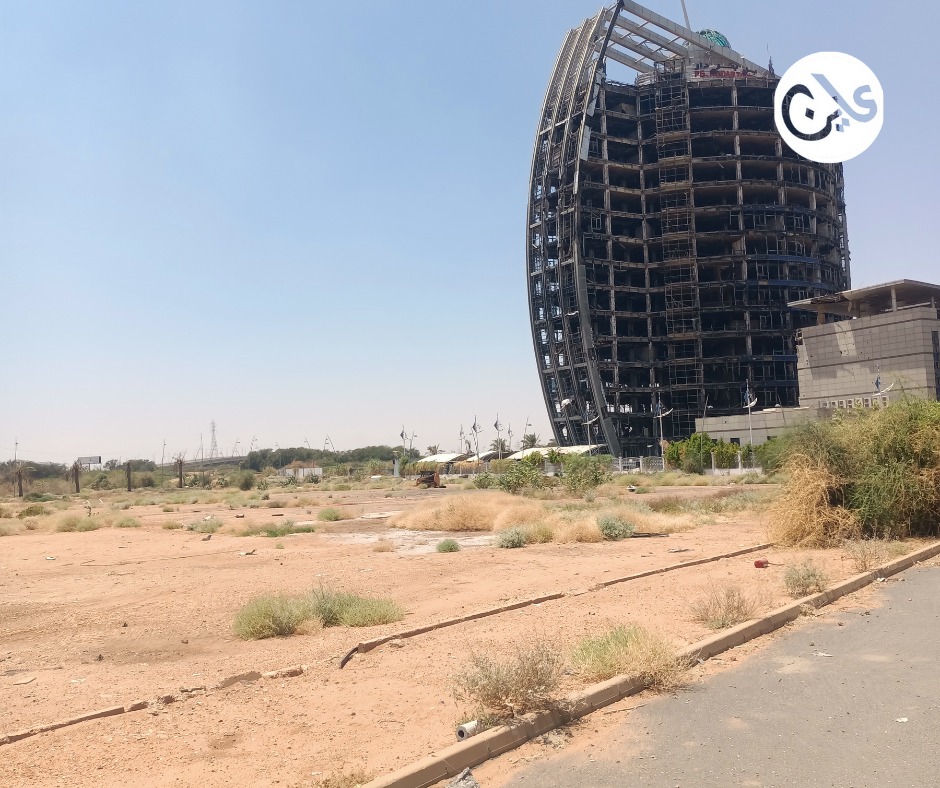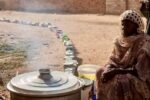No return to Khartoum
21 April 2025
While the conflict in Khartoum has largely subsided with the Sudanese army’s re-capture of the capital city in late March, the millions of the city’s conflict-displaced residents still cannot return. Most citizens see no signs of an imminent return to their homes; darkness persists, military deployments continue, drinking water is scarce, and hospitals remain closed.
The displaced in Khartoum state represent 60% of the 13 million people who fled their homes when war broke out in the country two years ago. The city remains largely deserted as critical infrastructure remains in ruins. Few people can be seen, local residents told Ayin, with the exception of desperate looters.
“Khartoum’s only change is the partial return of communication networks; the situation is still wartime, and most citizens can’t earn money to buy food,” said Mazen*, a resident of the al-Azhari neighbourhood in southern Khartoum. Mazen believes that while it is now possible to move around the city, there are few locations to visit given the wanton destruction. The once prominent “Souk Arabi” (Arab Market) in the city centre remains bare, he added. “People are desperately investigating how to earn money to find some stability.”
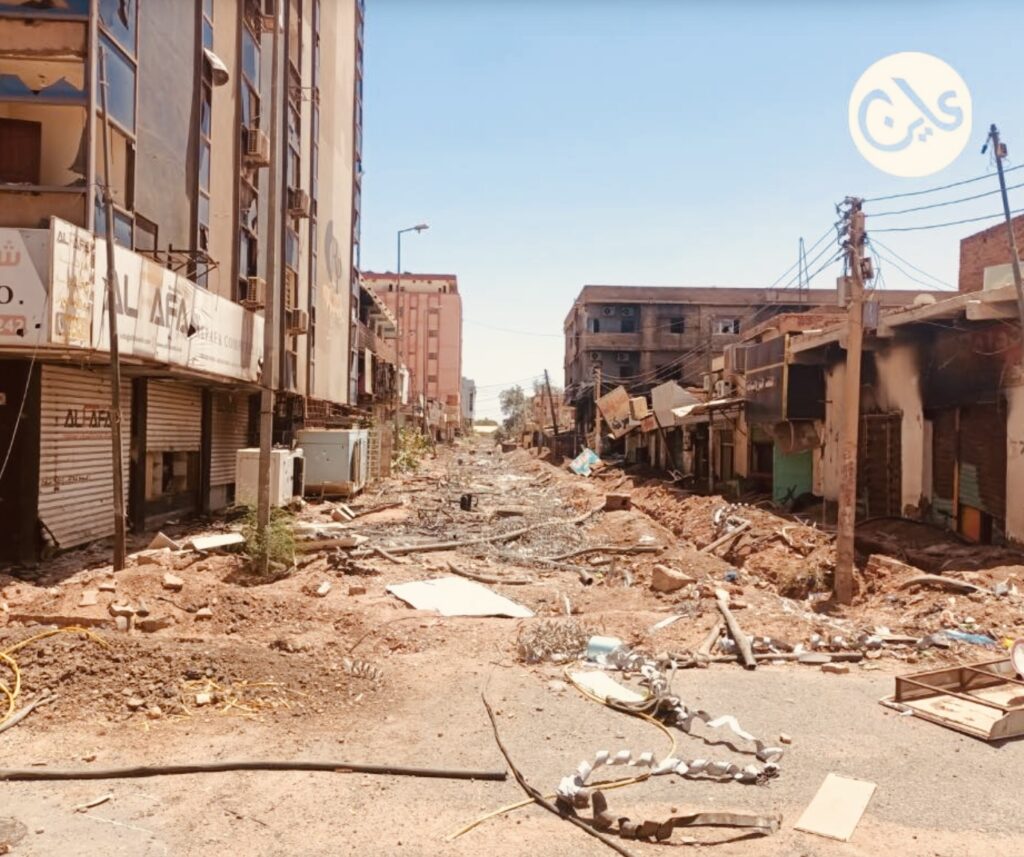
No life before reconstruction
“Khartoum is a city still in ruins and urgently needs significant funding to restore electricity and operate water stations,” civil engineer Mohamed Khalil told Ayin. “If people don’t receive basic services, they cannot leave displacement sites that have minimal electricity, water, hospital, and school services.”
Khalil asserts that restoring the Sudanese capital’s population density is a priority for the army-controlled government in Port Sudan, as it aims to increase public revenues from the functioning of markets, commercial establishments, and public institutions. However, this task appears daunting without an infusion of funds, which Khalil estimates will amount to approximately $1 billion in the first phase to rebuild what was destroyed by the war. And while the shelling may have subsided in the capital, Khalil says, insecurity is still prevalent, hindering significant reconstruction efforts.
“The war is ongoing. It is impossible to believe that the fighting has moved far from the capital. I do not believe that life will be safe this way. Even Khartoum Airport will not operate as long as drones are flying in the sky, striking airports and dams in the north of the country.”
In Omdurman, residents in some neighbourhoods are queuing to charge their phones at shops that provide generators. This scene provides a vivid example, according to Omar*, a young activist and volunteer, of the conditions of the people in the capital.
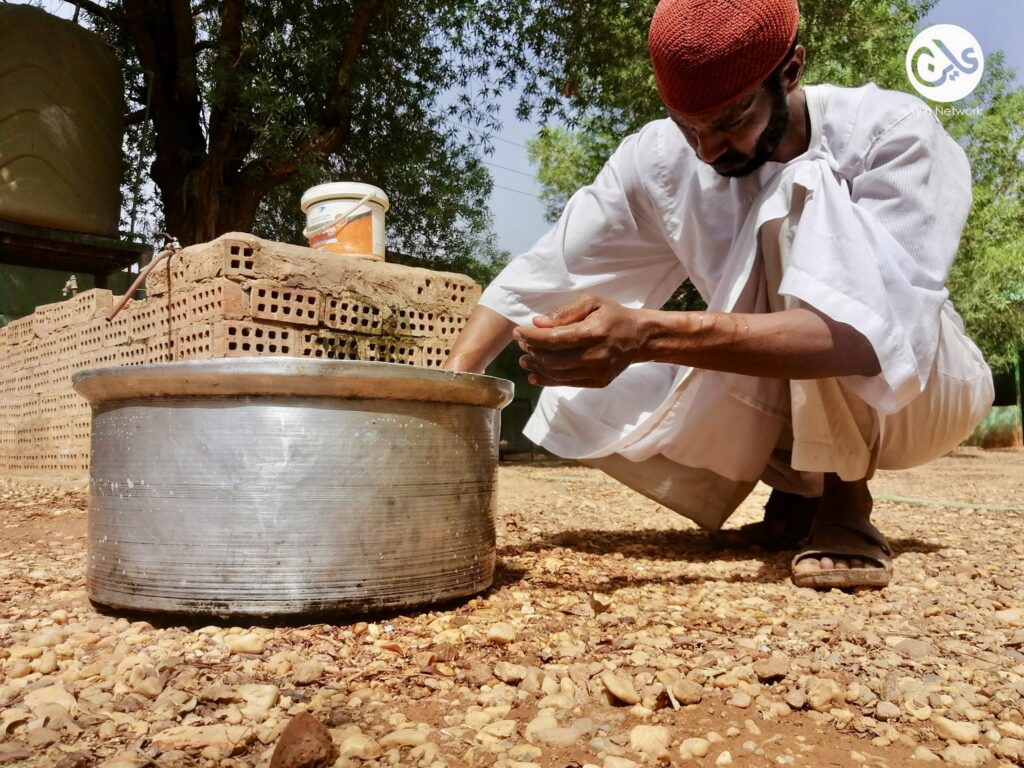
Difficulty managing food
“The greatest ambition of a citizen in the neighbourhood is to obtain wheat flour to make homemade bread or to access a community kitchen to provide free food from volunteers,” said Jawaher*, who has never left her home in the Al-Jereif neighbourhood, east of Khartoum. “The few citizens who have returned face more problems upon arriving here,” Jawaher told Ayin. “Either their furniture has been looted or they simply have no solutions or ideas to make life bearable.”
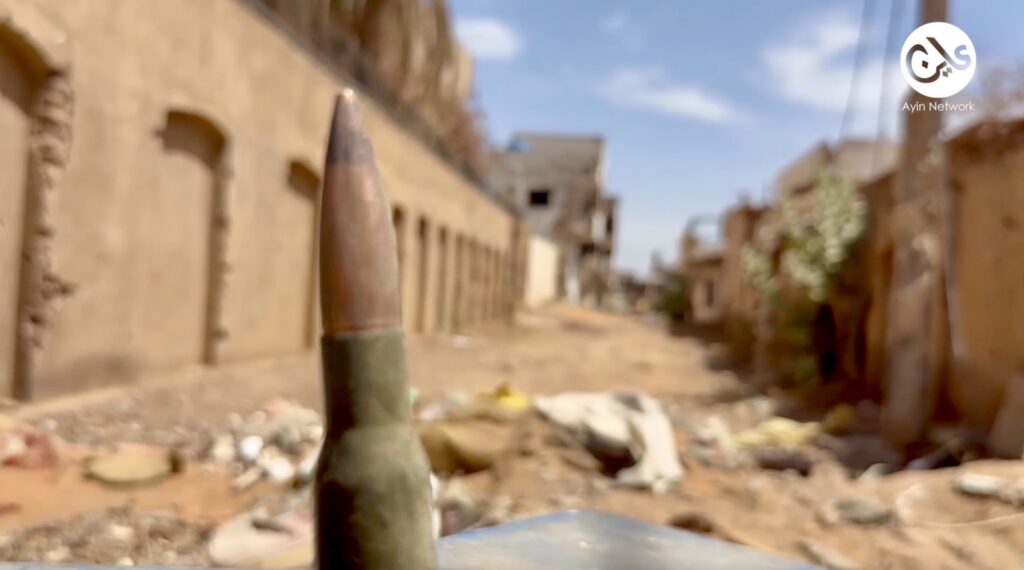
War remnants
War remnants and landmines are still found scattered across the streets. The United Nations confirmed last week that it was deploying a team to remove military remnants from the capital, despite acknowledging limited funding for these activities.
A government team is working to remove bodies, ammunition, and weapons from the buildings of the Ministry of Health’s STAC Central Laboratory on Al-Qasr Street in central Khartoum. This work is proceeding very slowly due to a lack of international funding.
“Cities that have been in the grip of armed conflict for months usually take a long time to recover because wars consume money, and the current government is unable to provide the funding to restore basic services,” says Majed Ahmed, a former aid worker with an international organisation.
Ahmed believes that Sudan has not yet launched a unified project to remove the remnants of war and that the current situation is being managed intermittently by local authorities in Khartoum State. There are no major operations to restore electricity, communications networks, and markets, he added.
“It is difficult for people to return to homes and neighbourhoods that are plunged into darkness. The security situation does not allow people to return, and the army is withholding information about the military situation in Khartoum.”
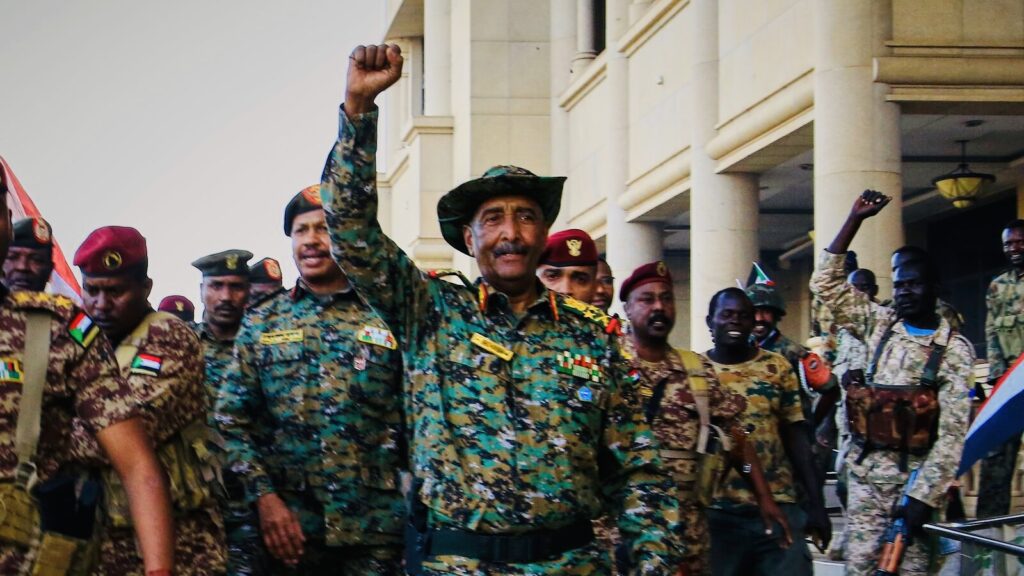
No plans yet
According to local government expert Mohammed Nagib, the army commander, Lt Gen. Abdelfattah al-Burhan, has not mentioned any plans to restore life in Khartoum after visiting the Republican Palace last month. “It is clear that he has nothing to say to the citizens, at least not at the moment.”
Nagib says civilians may return to find a city void of any services if they attempt to do so currently. “Citizens’ hopes of returning to Khartoum have been shattered by a harsh reality—whether it’s the suspension of public life and essential and vital services, the security situation, or the government’s lack of certainty about Khartoum’s future.”


